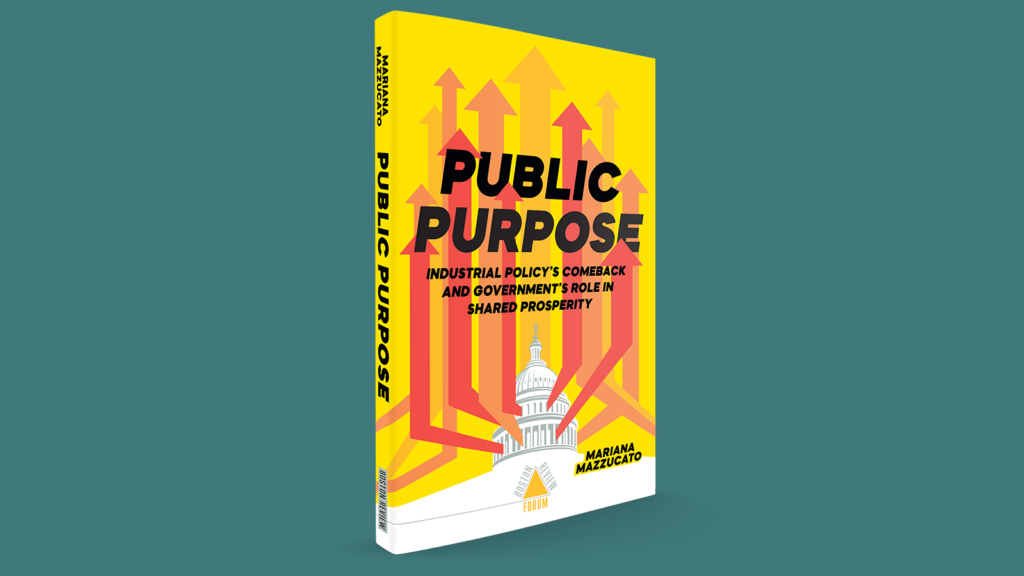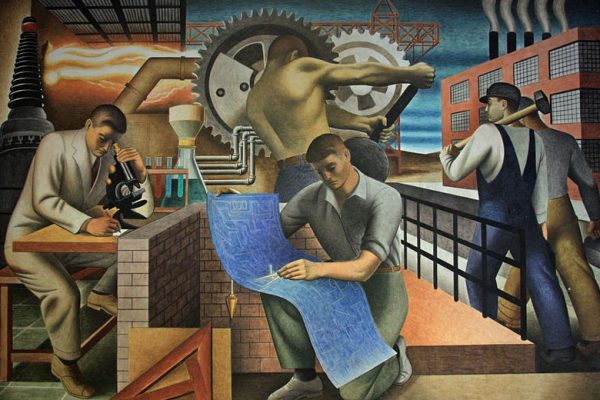Public Purpose
Known around the world for challenging mainstream economics, economist Mariana Mazzucato believes, as the Financial Times writes, that “the public sector can and should be a cocreator of wealth that actively steers growth to meet its goals.” In Public Purpose: Industrial Policy’s Comeback and Government’s Role in Shared Prosperity, she calls on governments to create the economies we need today.
Mazzucato’s challenge leads off a debate on the revival of industrial policy—roughly defined as deliberate government action to shape the economy. Industrial policy has fallen out of favor in recent decades as economists defer to free markets to produce innovation and growth. Yet today, thinkers across the political spectrum have begun expressing new interest in industrial policy as a way to address the most serious problems of our times: from national security and climate change, to the market’s underfunding of public goods, to sluggish economic growth and labor market dysfunction.
Public Purpose makes a compelling case for industrial policy—what it is, and why we need it now. Addressing investment, innovation, supply chains, and growth, it provides a robust vision of a renewed industrial policy, and what it can offer the US economy in the face of climate change and a global pandemic.
Editors’ Note
Forum I: Industrial Policy’s Comeback
Opening
We need a mission-oriented approach to the economy that embraces an active role for government in spurring growth and innovation.
Essays
Dispelling myths of entrepreneurial exceptionalism, a sweeping new history of U.S. capitalism finds that economic gains have always been driven by the state.
Far from a partisan for free markets, the Founding Father insisted on the need for economic planning. We need more of that vision today.
Pushing back against the throw-away economy, the EU is designing an industrial policy around garbage.



